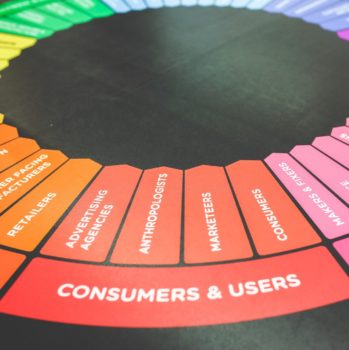Business in 2020: How Marketers Can Own the Customer Experience
by Lindsay Rowntree on 2nd May 2017 in News

A recent report from the Economist Intelligence Unit revealed 86% of CMOs and senior marketing executives believe they will own the end-to-end customer experience by 2020; which happens to be the same year Walker Information's Customers 2020 Report predicts customer experience will be the number one differentiator for brands. As Rebecca Martin, VP, marketing, Calabrio, writes, to succeed in customer experience, brands will need to map customer interactions with marketing outcomes. To get there, they’ll need to glean the right insights directly from customers.
To meet heightened customer expectations, marketers will need to take practical steps to leverage those insights so they can deliver a personalised customer experience. Here are the top five priorities for marketers as they take ownership of the customer experience.
Customer truth: Find the customer’s voice
Today’s consumer is 'always on'; and brands must adapt the same mentality. From social channels, to web chats, to phone calls, customers are talking and marketers better be listening. No matter the channel, marketers should employ speech and text analytics strategies to gain a firm grasp on customer interactions and conversations. With better customer data at their fingertips, marketers are able to get ahead of potential issues and make improvements to let customers know they’re listening.
Machines: Determine where they fit
By 2020, AI and machine learning will be commonplace in managing the customer experience, as well as maintaining any competitive advantage. Given the increased need for personalisation, AI and machine learning will become core to customer experience strategies; but it’s important for companies to find the right balance between technology and the human touch. While AI and machine learning will be widely beneficial in informing and finessing decisions, these technologies should never replace people. With this in mind, marketers can begin to integrate these elements into existing strategies and use them to help create the personalised experiences customers demand.
Data silos: Break them down
When designing technology strategies and solutions, companies must think holistically across the organisation in order to deliver a meaningful and authentic customer experience. From ERP to CRM, all digital touchpoints – whether internal or external – must be viewed in context with other systems. For example, if collected data indicates customers are unhappy with a particular product function or service offering, that information should be linked to product development, supply chain, and product marketing. These systems must also be available anytime, anywhere, and connected in a way that gives marketers continual access to the right information.
Change: Be proactive, not reactive
To keep up with change and be successful in 2020, marketers must encourage the implementation of new technology that helps them get closer to customers. All too often, marketers are in the position of being reactive to customer wants and needs. Today, marketers must be open to innovation to keep their competitive edge and give customers the experience they prefer. That doesn’t mean rushing into unproven technology or processes; but successful marketers should encourage continual, proactive research and openness to change.
Data: Understand how and where to use it
As the amount of data that companies collect grows, big data is only getting bigger. In the midst of an influx of information, many companies are missing out on insights that enhance customer experience strategies – and that data isn’t what they think. Data that indicates employee engagement levels is critical to the customer experience, because happy employees equal happy customers. In fact, companies that increase employee engagement by 5% see a 3% increase in revenue. Employee data gives marketing teams the right information to engage, excite, and motivate the teams who are working with customers every single day. As marketers, are tasked with understanding ever-increasing amounts of data, employee data and engagement should be an integral part of the strategy to bolster the customer experience.
Increasingly complex consumer habits, and a broadening number of communication channels, necessitates forward-thinking technology strategies for brands to stay competitive in the market. By constantly looking for new ways to innovate, implement new technologies, and engage with both customers and employees, marketers can take the right steps to successfully own the customer experience by 2020.








Follow ExchangeWire